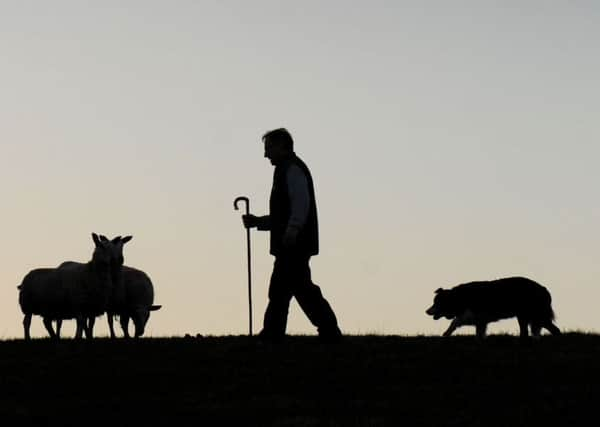The new mantra for the farming industry is improve or die
This article contains affiliate links. We may earn a small commission on items purchased through this article, but that does not affect our editorial judgement.


All around are temptations and inducements to being “improved”. You might aspire to just toddle along letting the go-getters in the industry set the pace but nowadays there are both carrots and sticks to goad the unambitious into action.
Last week saw the culmination of the latest session of Cultivating Future Leaders from within the ranks of the young farmers’ movement. Videos had been taken of the chosen few prior to going on the course and then, after taking in the callow, naïve, and often unambitious performances, there was a much more assured, businesslike bunch coming out the other end. No more average for them.
Advertisement
Hide AdAdvertisement
Hide AdThen there are Rural Leadership courses delivered by SRUC on behalf of Scottish Enterprise. The rationale is to produce those who will drive the industry forward and, if you are average and want to remain so, this scheme provides no hiding place.
Around 400 individuals have gone through the scheme in the past ten years and few, if any, have remained in the “run of the mill” farmer category.
Also in the war against being average, these two specific examples of the industry shaking off the dead hand of tradition and “it’s aye been done that way” attitude are now backed up by a network of Monitor Farms.
Hardly a day seems to pass but another Monitor Farm is announced and those who want to close their eyes to such opportunities for improvement are finding it difficult to escape. Fifteen years ago, opening farm doors and accounts to let neighbours see how a farm was performing was alien, and yet it has now been widely and enthusiastically taken up.
For the past 100 years, and possibly more, there have been many farmers’ meetings focused on widening the knowledge of those attending. These were often one-off events and highlighted an area for advancement. But never before has there been such a n effort to inject initiative, ambition and information into the industry.
Why this tsunami of improvement? It is possible something has been put in the drinking water that causes farmers to ignore doom-laden predictions from so-called experts. Those who have drunk at this well see no insurmountable problems, only lots of opportunity.
Importantly, they are also buoyed up by networking that comes from having been on such courses. Looking closely at new ventures, you can often find spiders’ webs of friendships tracing back to one of those courses. The current networking, often fuelled by social media, is no more than the modern commercial version of the old school tie or membership of an exclusive club.
Another reason for the rush towards improvement might be a realisation that the flattening effect on business profitability from subsidies is moving to an end game.
Advertisement
Hide AdAdvertisement
Hide AdThe universal subsidy which has been around for the past 70 years is about to diminish in importance.
Currently, everyone in a certain land category gets the same subsidy regardless of farming ability and business expertise but with Brexit will come a throttling down into a new and less supportive system.
It is extremely likely that Government will, in the future, support schemes which reward effective production systems. It is a pity the Beef Efficiency Scheme is such a bureaucratic nightmare as it gives a clue as to what might be a system for the future.
What is happening now is a push out of the door for those hanging on to being average.
This is not new. But what makes it worthy of comment is that the spin drier of efficiency is removing those not prepared to change their ways.
Farming is on the cusp of major change with the next generation more innovative, businesslike and taking a fuller role in dealing with such thorny issues as succession planning.
The mathematicians will point out there will be a new higher average and there will be the same number below the line in the future as there is now.
That is true but the farming industry is moving on.
